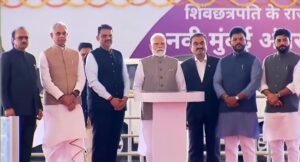Why Was Fuel Cut? Air India Co-Pilot’s Question Before Deadly Crash Revealed in Cockpit Audio

Why Was Fuel Cut? Air India Co-Pilot’s Question Before Deadly Crash Revealed in Cockpit Audio
A cockpit voice recording from the ill-fated Air India Flight 171 has revealed that the junior co-pilot questioned the captain’s decision to shut off the aircraft’s fuel supply switches, according to sources familiar with the investigation.
The exchange, captured moments before the June 12 crash in Ahmedabad, was mentioned in last week’s preliminary report by India’s Aircraft Accident Investigation Bureau (AAIB). However, the report didn’t identify which pilot made the remarks. Now, sources who spoke on condition of anonymity have provided more details about who said what during the final seconds of the flight.
The AAIB report showed that two fuel-control switches in the Boeing 787 Dreamliner’s cockpit had been moved to the cut-off position, severing fuel flow to the engines and causing the aircraft to lose lift. The plane crashed just 32 seconds after takeoff, killing all 260 people on board and some on the ground.
According to the cockpit recording, the first officer believed to be Clive Kunder asked why the fuel switches were turned off. Aviation experts say Kunder, who was the pilot flying at the time, would have had both hands occupied — one on the yoke and the other on the throttle making it unlikely he would have operated the switches himself. Captain Sumeet Sabharwal was the other pilot in the cockpit.
Although the switches were turned back on about 10 seconds later, it was too late to recover control of the aircraft. Investigators are now focused on understanding how and why the switches were shut off in the first place whether it was due to human error or a technical malfunction.
Michael Daniel, a retired U.S. Federal Aviation Administration inspector, said the cockpit voice recording could offer even more precise clues. “There are multiple microphones in the cockpit, including those in pilot headsets,” he explained. “It’s possible to identify the direction of sound, which can help determine exactly who operated the switches.”
The Civil Aviation Authority of India has since ordered inspections of fuel-control switches on all Boeing 737 and 787 aircraft in the country to rule out any systemic failures.
Meanwhile, aviation psychologists and medical experts have joined the investigation — a standard protocol in major air crashes — to examine the human factors that may have contributed to the tragedy.
Sources cited by The Wall Street Journal said the first officer expressed confusion and panic after noticing the switches were off, while the captain appeared to remain calm. The Airline Pilots’ Association of India has opposed early speculation pointing to pilot error.
The AAIB, U.S. National Transportation Safety Board (NTSB), Boeing, Air India, and GE Aerospace — which manufactures the aircraft’s engines — have all either declined to comment or referred queries to the lead investigating authority.










